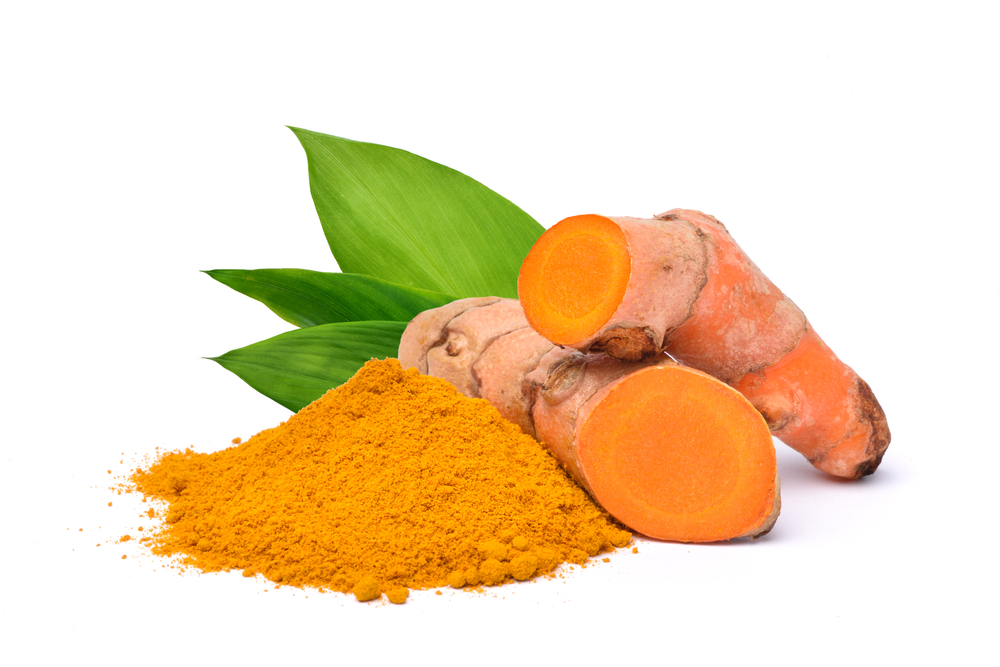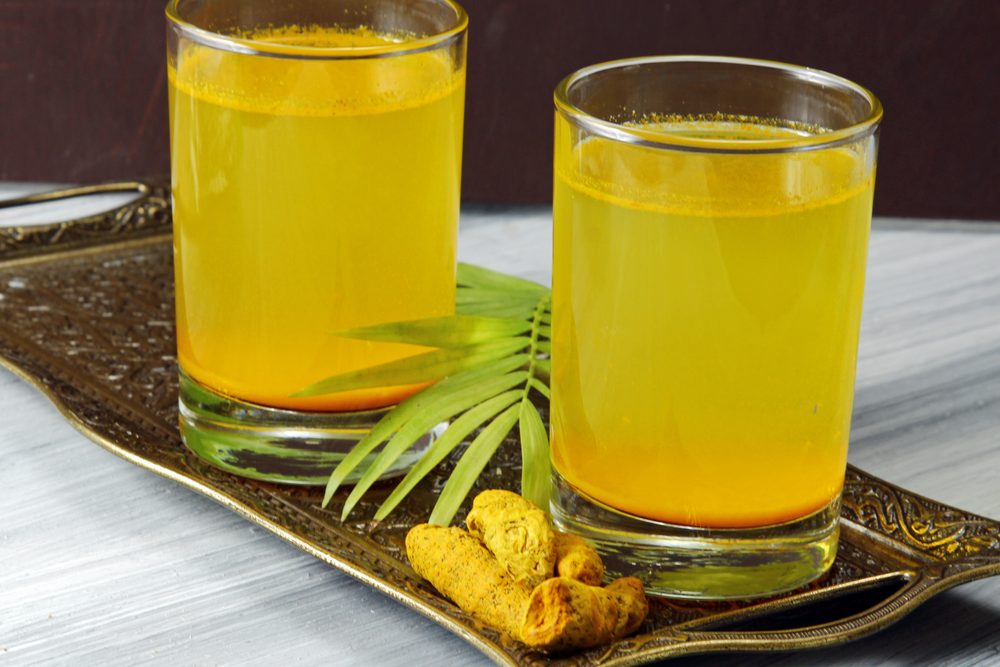Lemon-turmeric is a classic combination that lends itself to many delicious variations. The citric kick and the earthy taste of both ingredients concoct an exquisite flavor that’s also extremely healthy. It’s no wonder lemon turmeric kombucha is one of the best-selling flavors.
Lemon turmeric is the base for many health tonics. These ingredients can help your body avoid infections, improve your metabolism, and aid your liver in detoxing your body. Add cayenne pepper, ginger, or honey to boost the flavor and benefits of this potent drink.
Table of Contents

Lemon Turmeric Kombucha
Total Time: 3 days
Yield: 8 Servings 1x
Description
This unique lemon turmeric kombucha recipe is a potent health booster and a tasty flavor bomb. Featuring purely organic ingredients, this recipe has a natural, earthy, and tangy taste you’ll love any day of the week.
Ingredients
Scale
- 1/2 gallon green tea kombucha
- ¼ cup lemon juice
- 1 teaspoon organic turmeric powder
- 1 tablespoon maple syrup (optional)
- Pinch of black pepper (optional)
- Lemon wedges for garnish
Instructions
- Pour the lemon juice and turmeric powder into a large container with a well-fitting lid. Stir to mix.
- If using, add the black pepper and maple syrup. Stir until mixed.
- Add the fermented kombucha into the container, leaving one inch of headspace before tightening the lid.
- Ferment the beverage for 3-5 days at room temperature, away from direct sunlight.
- Chill the kombucha in the fridge for at least 6 hours.
- Garnish with lemon wedges, and enjoy!
Notes
Green tea is the preferred tea base, but you can also use black or oolong tea.
Turmeric belongs to the ginger family, and its golden-yellow pigment, curcumin, is extremely strong. Be careful when handling it, as it may stain your skin or clothes.
Use 2 tsp fresh turmeric root instead of powder. Use cane sugar or honey instead of maple syrup if needed.
Add 2 tsp fresh ginger root for an extra health and spice kick.
Kombucha ferments faster in warm temperatures. If you brew kombucha in a cold environment, the second fermentation may last up to one week. To test the flavor and carbonation, put a small amount in the fridge (with a lid) for six hours and then taste it. If it’s to your liking, your homemade kombucha is ready. If not, leave it to ferment for another day or two.
- Prep Time: 5 minutes
- Fermenting Time: 72 hours
What Does Lemon Turmeric Kombucha Taste Like?
Lemon turmeric kombucha has an earthy, citric, and slightly bitter taste. Turmeric has a bold flavor; however, its intensity in this recipe is toned down by lemon juice. The maple syrup also adds a touch of sweetness to the drink, while the black pepper makes the beverage more well-rounded.
Furthermore, the kombucha tea flavor will depend on its specific brew length. Young kombucha tends to be sweeter; thus, giving this beverage a blend of sweet, sour, and spicy. On the other hand, older kombucha tends to be more acidic and fizzy.
What Is Turmeric?
The turmeric plant is a vascular, highly-branched, and cylindrical spice that gives off a pleasant and highly distinct aroma. It ranges in colors from yellow to orange. Turmeric is native to Southeast and South Asia but is mainly grown in India for commercial purposes due to the region’s climate.
However, you may be more familiar with the powdered form of turmeric. This is made by boiling the turmeric rhizomes and drying them under the sun before being ground into a yellowish powder.
Turmeric powder typically goes well with other spices, such as cumin, ginger, and chives.

What Are the Health Benefits of Lemon Turmeric Kombucha?
Health-conscious folks enjoy kombucha for a variety of reasons, one of which is the sheer amount of health benefits it provides.
Kombucha is fermented using a kombucha SCOBY, which produces acetic acid, enzymes, and good bacteria. The bacteria then acts as a probiotic to improve gut health, whereas the acetic acid produced can help kill harmful microorganisms in your body. On top of that, kombucha is rich in tea polyphenols and antioxidants, which help improve cholesterol, reduce blood sugar, and may prevent the growth and spread of cancer cells in your body.
Aside from the benefits of kombucha, you will also enjoy the health benefits of lemon and turmeric in this recipe.
Lemon:
- Increases absorption of iron to minimize anemia.
- Helps to prevent the formation of kidney stones.
- May reduce the risk of cancer.
- May reduce the risk of cardiopulmonary disease.
Turmeric:
- Boosts brain-derived neurotrophic factor (BDNF).
- Acts as a potent anti-inflammatory agent and antioxidant.
- May reduce the risk of Alzheimer’s disease.
- May reduce the risk of heart disease.
How Much Caffeine Is In Lemon Turmeric Kombucha?
There are about 10 mg of caffeine per 8 oz of lemon turmeric kombucha. The caffeine comes from the kombucha tea base. Lemons and turmeric do not contain caffeine.
How Many Calories Are In Lemon Turmeric Kombucha?
Lemon turmeric kombucha contains about 33 calories per 8 oz.
Here’s the caloric breakdown of an 8-oz serving of this drink:
- Kombucha: 30 mg
- Lemon juice: 2 mg
- Turmeric: 1 mg
Adding one tablespoon of maple syrup to the batch adds approximately eight more calories per serving. Allow the maple syrup to ferment with the turmeric, or add it before serving.
Should You Make This Recipe with Young, Sweet Kombucha or Older, Sour Kombucha?
I suggest using sour kombucha for this recipe, especially if you add maple syrup to the drink.
The longer kombucha ferments, the more sour it becomes as the ethanol produced during the aerobic respiration of the first fermentation is broken down into acids.
The accumulation of these acids contributes to the tarter taste of the kombucha. As more time passes during the fermentation phase, the more sour the batch of kombucha will be. The acids will also become more abundant and feed off the yeast, causing a ramp-up in carbonation.
Ultimately, whether you want to use young or sour kombucha is your decision. However, if you want your beverage to be carbonated or prefer a strong acidic taste, it’s best to use older kombucha to prepare the drink.

